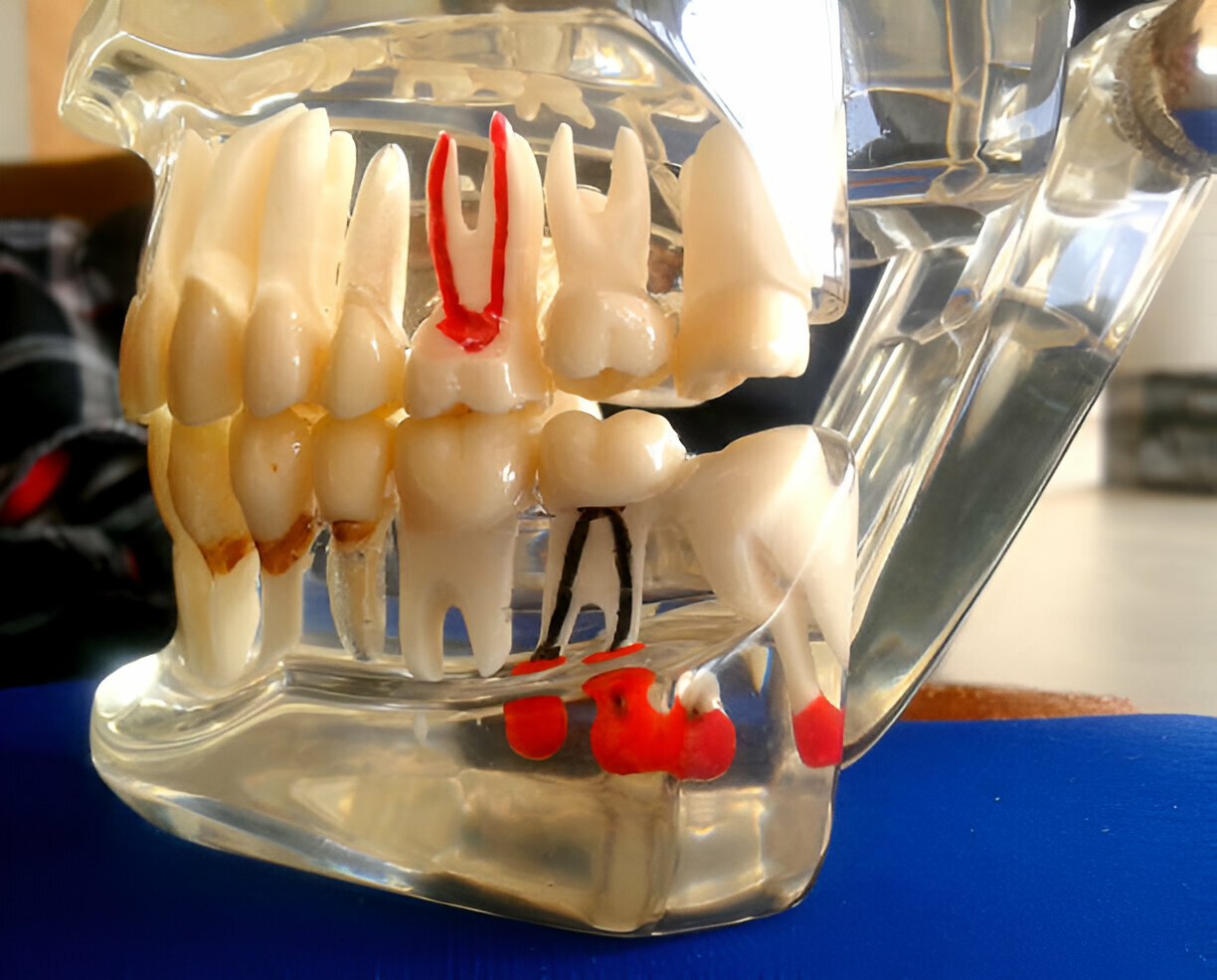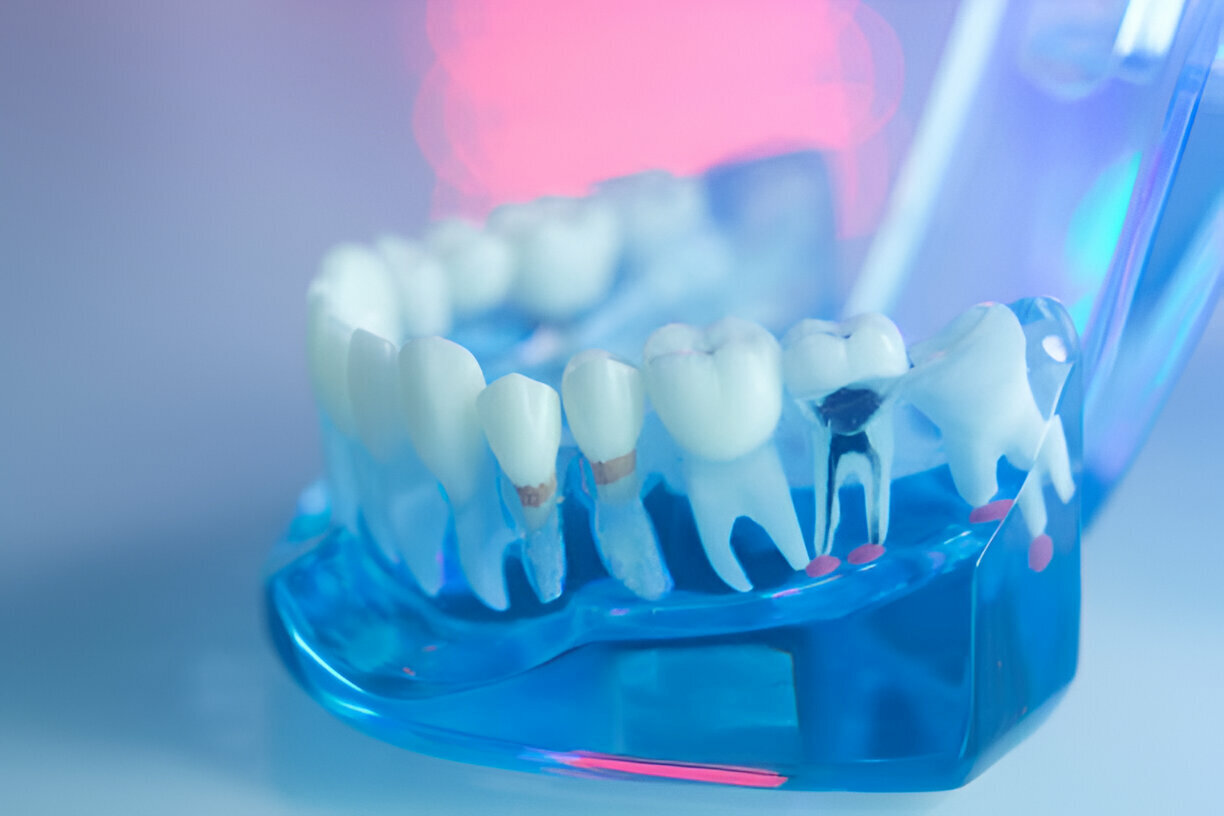Summary
Do you often suffer from severe tooth pain?
If yes, then chances are that it’s either tooth decay or a nasty infection!
In either condition, your dentist might suggest a root canal treatment to help you overcome the pain and restore your oral health. This procedure, also known as RCT, eliminates decay in your tooth’s pulp and root, bringing much-needed relief.

Sadly, although the procedure is pretty common (nearly 15 million root canals are performed yearly), most individuals think otherwise.
Therefore, this blog aims to give you a complete insight into root canal treatment via topics like:
- Root Canal Treatment – A Closer Look
- What Happens During the Procedure?
- 7 Warning Signs that You Need Root Canal Treatment
So continue reading as we learn more about root canals in detail in the following sections.
Root Canal Treatment – A Closer Look
A root canal treatment is a dental operation that removes inflammatory or diseased pulp from the inside of the tooth, which is then meticulously cleansed, disinfected, filled, and sealed. Root canal therapy is intended to remove germs from an infected root canal, prevent reinfection, and save the original tooth.
During a root canal treatment, your Charlotte, NC, dentist will:
- Remove decay and germs from the root, tooth pulp, and nerve.
- Disinfect the region using antibiotics.
- Fill the vacant roots.
- Seal the space to avoid further degradation.
The root canal procedure preserves your original tooth and avoids additional deterioration. However, it makes the tooth more vulnerable. That is why a tooth with a root canal is frequently crowned.
What Happens During the Procedure?
A root canal is performed by a dentist or, in more severe situations, an endodontist, a specialist who diagnoses and treats tooth pulp-related problems. They will use dental X-rays to assess the severity of tooth decay, damage, and infection. The dentist will then numb the region with a local anesthetic before drilling a hole in the tooth and extracting the diseased pulp.
Subsequently, the area is cleansed, sealed, and filled with a rubbery substance known as gutta-percha. The dentist will next apply a crown to strengthen and protect the tooth from future harm. Root canal therapy requires two to three sessions, depending on the severity of the infection, and can last 30 to 90 minutes.
7 Warning Signs that You Need A Root Canal
The only way to know if you need a root canal is to consult an expert at Smile Dentistry in Charlotte, NC. However, there are various warning signals to look out for.
If you have any of these symptoms, contact your dentist immediately. The sooner your tooth is treated, the higher the chance of a successful outcome.
1. Persistent Pain
Persistent tooth discomfort is one indication that you may require a root canal. Your toothache may be constant or fluctuating. But if it keeps returning, root canal treatment is unavoidable.
You may be experiencing soreness deep into your tooth’s bone and discomfort in your cheeks, jaws, or teeth. Various conditions can cause tooth pain. Some other alternatives include:
- Gum disease
- Cavity
- Pain due to sinus infection or other conditions
- A defective filling
- An impacted tooth that might be infected
If you experience tooth discomfort, you should see your dentist, regardless of the cause, especially if it is chronic. Early diagnosis and treatment for tooth pain usually result in a better outcome.
2. Sensitivity to Heat and Cold
Does drinking coffee or eating hot meals hurt your teeth? Or maybe your teeth get sensitive when you consume ice cream or sip a cold glass of water.
The sensitivity may hurt sharply or with gradual discomfort. If this discomfort persists for a long time, even after you stop eating or drinking, you could require a root canal. Your tooth may be painful when you eat or drink something hot or cold. This might indicate that your tooth’s nerves and blood vessels are injured or infected.

3. Tooth Discoloration
A tooth may turn discolored due to an infection in its pulp. Trauma to the tooth or collapse of the internal tissue can harm the roots, causing the tooth to look grayish-black.
This discoloration is more noticeable on the front (anterior) teeth. Tooth pulps might die when there is insufficient blood flow, indicating the necessity for a root canal.
Although various factors can cause tooth discoloration, it is always a good idea to consult your dentist if you notice a tooth changing color.
4. Swollen Gums
Swollen gums around a tooth that hurts might indicate a problem that needs a root canal. The swelling could appear and go. When you touch it, it might not hurt or be tender.
Edema, or swelling outside of the root tip region, is brought on by the acidic waste products of dead pulp tissues. Additionally, there can be a little zit on your gums. This is referred to as an abscess, parulis, or gum boil.
The tooth infection may cause the zit to leak pus, leaving you with a foul breath and an unpleasant aftertaste.
5. Pain When You Eat or Touch the Tooth
If your tooth is sensitive when you touch it or chew, it might suggest significant dental decay or nerve damage that requires a root canal. This is especially true if the sensitivity develops over time and disappears after you stop eating.
The ligament surrounding your infected root tip may become hypersensitive as the pulp dies. The waste materials from the dying pulp might irritate the ligament, creating discomfort from biting pressure.
6. A Chipped or Cracked Tooth
If you chip or break your teeth in an accident, during a contact sport, or when biting on anything complicated, germs can enter and cause inflammation and infection.
Even if a tooth does not crack or break, the injury might result in nerve damage. The nerve can become inflamed, causing sensitivity and discomfort that may require root canal therapy.

Tips to Prevent Root Canal
To avoid a root canal, maintain a proper oral hygiene routine that helps prevent cavities and other tooth issues. To maintain healthy teeth, you must develop a few habits suggested by your dentist for root canals in Charlotte. These include:
- Brush your teeth at least twice daily
- Visit your dentist for a check-up every six months
- Floss in between your teeth at least once daily
- Use fluoridated toothpaste or a fluoride rinse
- Get your teeth thoroughly cleaned by your dentist at least once a year
Try to restrict your intake of sugary foods and processed carbs. These foods tend to cling to your teeth. If you consume sweet meals, attempt to rinse your mouth or brush your teeth soon after.
Takeaway
- A root canal treatment is a dental operation that removes inflammatory or diseased pulp from the inside of the tooth.
- If your tooth is sensitive when you touch or chew, it might suggest significant dental decay or nerve damage.
- Edema, or swelling outside of the root tip region, is brought on by the acidic waste products of dead pulp tissues.
- Still, have doubts about the root canal procedure? Visit our experts at Smile Charlotte today!


